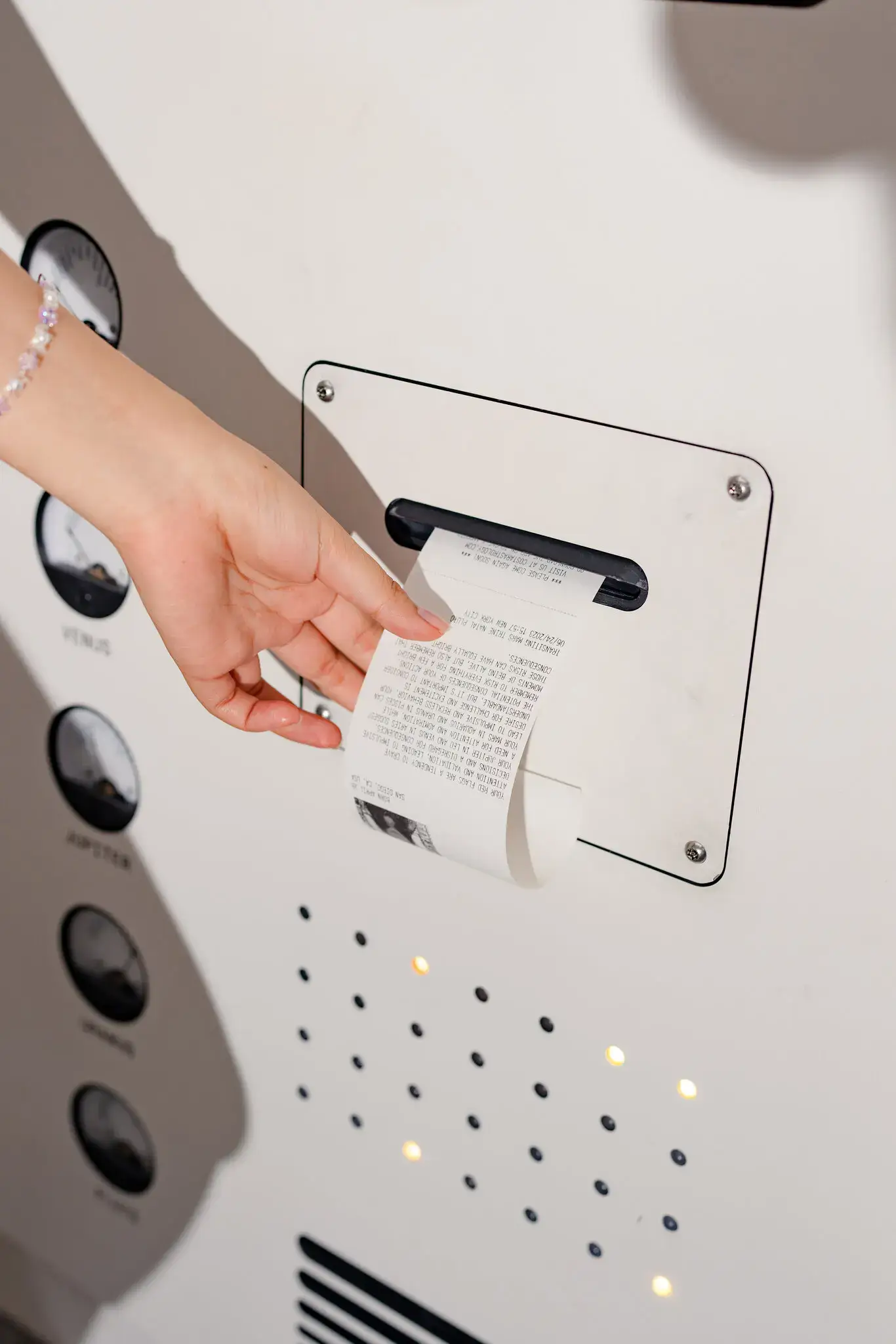The towering machine stood next to the deli counter, dwarfing the cardboard boxes near the entrance of the Iconic Magazines store in SoHo. Resembling a standing washer-dryer, its white facade was adorned with black buttons, rows of blinking lights, and gauges labeled with celestial bodies. Tim Wiedmann, a 27-year-old student from Germany, marveled at its appearance, comparing it to something from NASA.
Drawn by the machine’s allure, Mr. Wiedmann approached it, greeted by the directive on its front screen to “ask the stars.” Using a knob, he scrolled through a wide range of about 100 questions. Curiously, he pondered over queries such as improving his job performance, leaving New York, and even starting a cult. After selecting his question, Mr. Wiedmann inputted his birth date, time, and location. The screen flashed a message, stating that all answers were based on astrological calculations. With the help of its built-in camera, the machine captured his picture. Shortly after, it produced a piece of paper displaying his grainy portrait and an answer to his chosen question.
To Mr. Wiedmann, it felt as though there was someone inside the machine. He wasn’t alone in his fascination. Numerous people lined up, with queues sometimes extending through the store, all eager for their turn with the mystical device. Many had discovered the machine through TikTok, including two 19-year-old students who shared their experiences.
“One of us asked about our red flags,” said one of the students, referring to the question they chose. The other student proceeded to read the machine’s printed response aloud, revealing their red flags as a tendency for high expectations, a fear of conflict, and a need for perfectionism and a fear of rejection due to their Jupiter and Saturn placements. The machine urged them to embrace conflict with compassion and let go of unrealistic expectations to foster growth and meaningful connections.
Initially unbeknownst to most users that night, the machine’s answers were generated using artificial intelligence, specifically ChatGPT and GPT-3. Developed by Co-Star, a technology company known for its popular astrology app that utilizes AI to generate readings, the machine served as a promotional tool for Co-Star’s new in-app service called Embrace the Void. This service, priced around $1, functions similarly to the machine, providing users with AI-generated answers to open-ended questions not typically covered in the app’s astrological readings, drawing from Co-Star’s database of prepared text.
Banu Guler, the 35-year-old founder of Co-Star, drew inspiration from various sources for the machine’s design, including Soviet-era computers, NASA devices, photo booths, and vending and washing machines. She also cited Zoltar fortune-telling machines, reminiscent of the popular attractions at boardwalks and arcades, as a significant influence. Ms. Guler fondly remarked on the appeal of receiving a personalized reading and the keepsake quality it possessed, even if one knew it was mere novelty.
Before founding Co-Star in 2017, Ms. Guler worked in art sales and taught herself AI programming to predict factors affecting artwork auction prices, such as the weather on the auction date. Drawing on her AI knowledge, she went on to create Co-Star. Ms. Guler acknowledged that astrology is an imperfect science, but she emphasized the imperfection inherent in all areas of human endeavor, including science itself. She expressed an appreciation for the beauty of human imperfection.
Vijender Sharma, a 35-year veteran Vedic astrologer from northern India, admitted to using software for preparing readings. As long as the AI was trained with accurate knowledge, he saw no harm in employing such technology, considering astrology’s foundation in scientific





